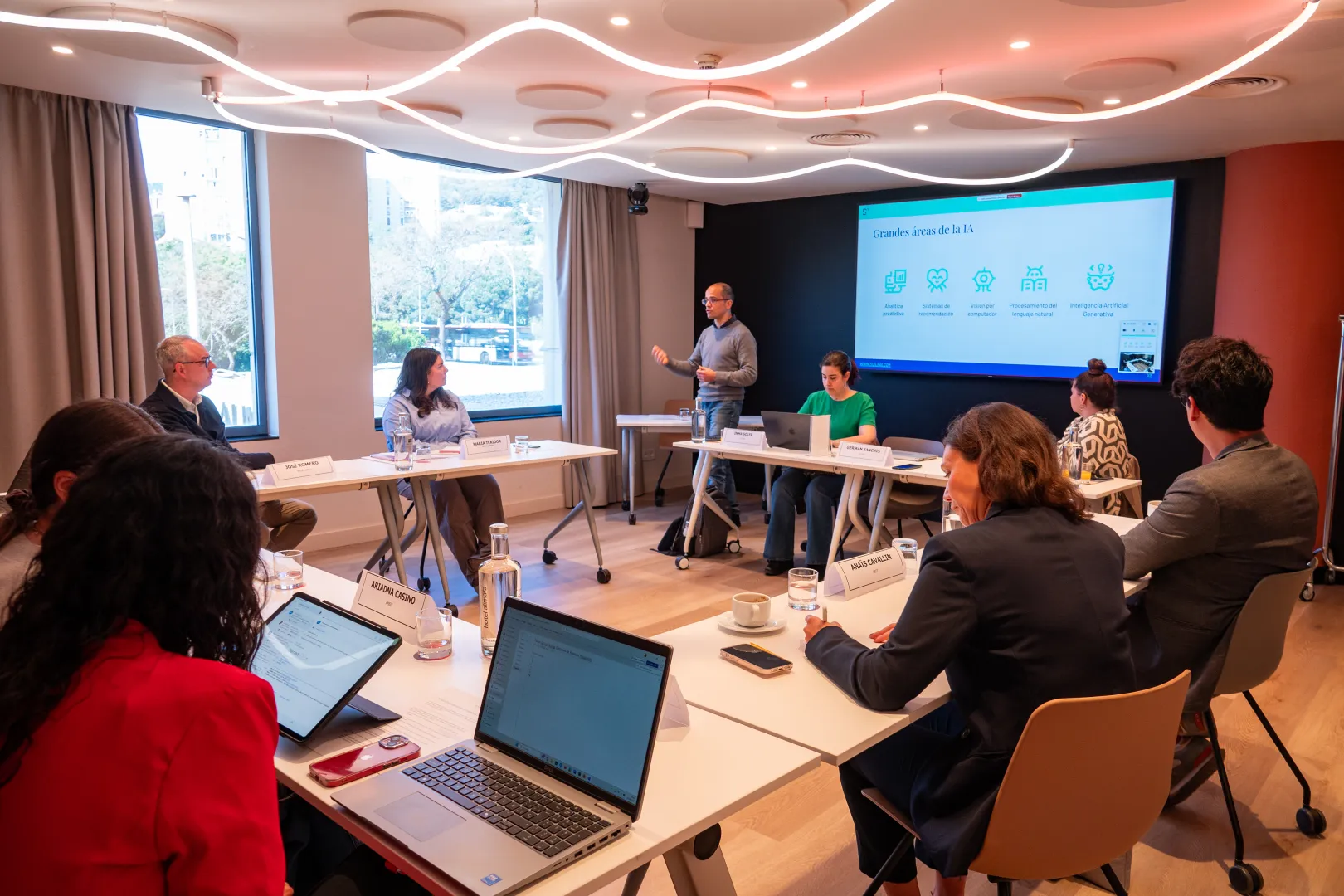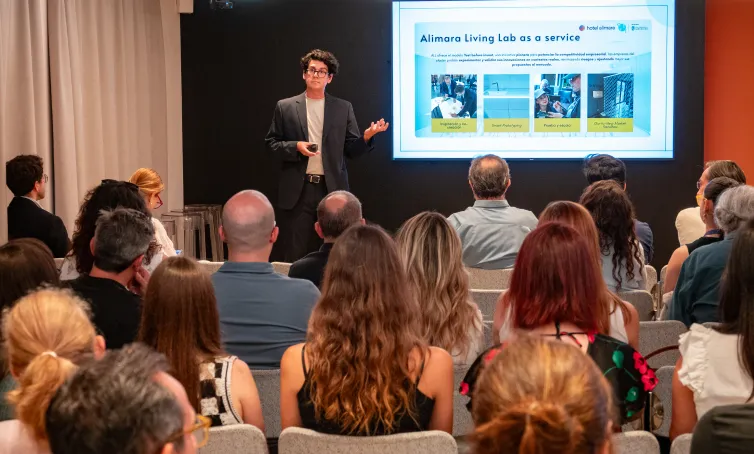CETT, Clúster AMBIT, and Sciling explore the use of generative artificial intelligence in hospitality spaces

CETT, Barcelona School of Tourism, Hospitality and Gastronomy, Clúster AMBIT, and Sciling are collaborating to explore the emerging role of generative artificial intelligence (AI) in the field of spatial design for the hospitality sector, highlighting its potential as a lever for strategic transformation.
The study, whose ultimate goal is to publish a reference guide for the industry, is part of the European project FURN5.0, coordinated by Clúster AMBIT. During the exploratory phase, focus group sessions were held with executives, space managers, designers, interior architects, and product manufacturers involved in this field. The aim was to identify barriers, opportunities, and potential use cases for this technology. Topics addressed included the current level of digitalization, existing AI applications, and the transformative potential of generative AI.
Operational efficiency as a priority in space management
Among professionals managing hospitality spaces, it was noted that although they often have access to data, they lack the tools to extract maximum value from it. As a result, many key processes—such as pricing and scheduling—are still managed manually. In this context, traditional AI, particularly technologies like predictive analytics, is seen as a strategic ally to automate repetitive tasks, improve efficiency, and reduce costs, especially in inventory or human resource management.
In contrast, awareness of generative AI remains limited, though its potential in visual and creative areas is widely acknowledged. Participants agreed that the greatest value of generative AI lies in three core areas: personalizing customer experience, optimizing pricing, and enhancing operational management, from more efficient coordination between departments to reducing food waste. Key barriers identified include a lack of specific training, limited budgets, and the need for strong internal leadership to drive innovation projects.
Design professionals embrace creative and human-centered AI
Design and interior design professionals, in contrast, show a more proactive and exploratory approach. They report using tools like Midjourney or ChatGPT to boost creativity and streamline processes such as preparing budgets or presenting visual proposals to clients. They also recognize generative AI's value in the early stages of the creative process, helping better understand briefings and generating visual catalogues to facilitate project validation.
Nonetheless, they stress the importance of humanizing AI and maintaining creative and professional control. They also emphasize the need for specific training and seamless integration of AI tools into workflows, while raising questions about authorship of AI-generated content.
Meaningful innovation and measurable value
Despite their differing perspectives, both groups agree on the need for purposeful digital innovation—safe, meaningful, and focused on tangible value. The exploratory phase of the study revealed the importance of real-world case studies, pilot experiences, and ongoing training. One of the main conclusions was the need to demonstrate return on investment to decision-makers using concrete metrics that quantify the impact of generative AI on management and design processes.
The full results of this research will be included in a sector-specific publication to be presented at interihotel 2025, held from October 21 to 23 at Fira Barcelona. This report will serve as a roadmap for the strategic adoption of generative AI in hospitality spaces, aiming to support companies and professionals across the value chain in integrating these tools effectively, sustainably, and in alignment with the human-centered values that define the sector.



